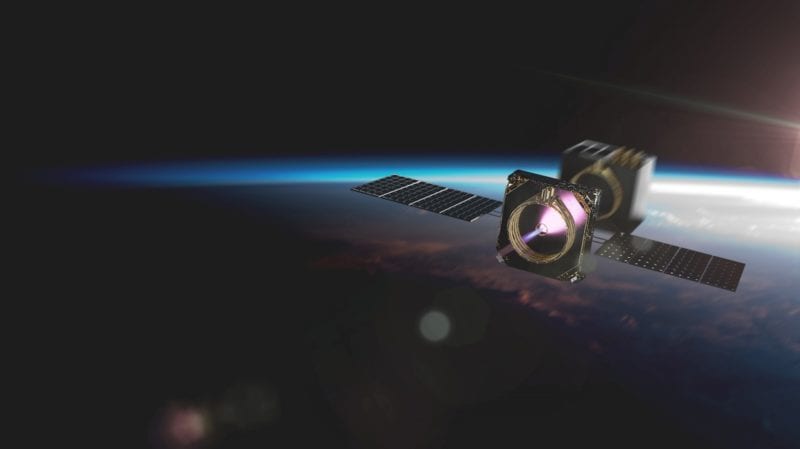LuxSpace to Fly LEO Hosted Payload Platform on Momentus Vigoride OTV in 2023

A rendering of Momentus’ Vigoride in-space shuttle. Photo: Momentus
Satellite manufacturer OHB‘s Luxembourg-based subsidiary LuxSpace announced Monday that it has signed a contract with in-space transportation and infrastructure services company Momentus to hitch a ride on its Vigoride orbital transfer vehicle next year.
LuxSpace will send its Triton-X small satellite hosted payload platform into Low-Earth Orbit (LEO) on the Vigoride Orbital Transfer Vehicle during a scheduled in-orbit subsystems demonstration mission. Triton-X is a new line of microsatellites with a launch mass of up to 200 kg aimed at enabling affordable satellite constellations in LEO.
“With the launch of Triton-X on Vigoride, LuxSpace is proudly validating in-orbit the ground-breaking capabilities of the main technologies of our Triton-X product line,” LuxSpace CEO Edgar Milic said in the announcement. “As such, this mission will include a complete Triton-X integrated avionics unit (IAU) together with an advanced communication transceiver and other technologies. Executing this first Triton-X flight on Vigoride gives us the possibility to focus on our key mission objectives and rely on Momentus for other operational tasks.”
Financial details of the Momentus contract were not disclosed.
LuxSpace has previously launched seven space systems, including the Triton-2/ESAIL satellite in September 2020 and two satellites under the Triton-1 platform.
In November 2021, Exotrail, a French space company, teamed up with LuxSpace to collaborate on Triton-X. The two companies integrated ExoMGTM – cluster2, a configuration of Exotrail’s high thrust and flexible electric propulsion product family, into OHB’s Triton-X Heavy platform.
In May 2021, the company signed a contract with the European Space Agency (ESA) under the ARTES (Advanced Research in Telecoms System) program for a partnership project on the development and qualification of Triton-X, which is scheduled to be ready for commercial use by mid-2023.